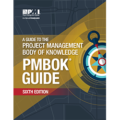
Imagine the following scenarios:
- A phone call or meeting with the client smooths over late delivery of a report.
- A subcontractor completes his task late and offers a financial discount that improves the project’s economics.
These are not uncommon scenarios, and they appear to render the current schedule meaningless. Does this mean it was a waste of time to make a schedule in the first place?
A schedule management plan is the part of a project management plan which deals with the schedule. For small and medium sized projects, I would suggest it should be a section within the project management plan. If schedule changes are expected to be major or it is important to communicate how they will be handled, a separate plan could be created.
For projects under about $100k, I would suggest a paragraph or two will suffice. As long as the topics discussed below are addressed the section is complete.
Here are the three sections:
- Schedule Development
- Schedule Control
- Change Management
Schedule Development
In this section the procedures are set in place for schedule development and revision. Because the schedule is constantly scrutinized (at least in every project I know of) a written procedure with parameters for estimating tasks and resources is a good thing. It’s even more important if multiple people might be creating or editing it.
Also, if your project is bigger than 50 tasks or so, a project scheduling software product is probably an important investment. Microsoft Project is one option, or an online cloud based alternative can be fired up almost instantly. Here are a few real life examples.
The project manager will be responsible for developing and managing the project schedule. Whenever possible, front line workers will be employed in the estimation of task durations and resources. Software is at the project manager’s discretion, but a copy of the most current schedule will be kept in the project management binder at all times. The project schedule will be developed and maintained by the project manager, and a copy stored in the project office. The project manager will estimate task durations and resources, and establish the dependencies within the project tasks. Schedule Control
Schedule Control
In this section the procedures are put in place to measure and control the project schedule. Throughout the project, the schedule and cost variances should be known, or calculated regularly, which requires an estimation of the percent complete of each task in the schedule. It requires answering the following questions:
- How will it be measured? What units will be used to measure the completeness of tasks? Percent complete is the most popular, but you can also use hours, total cost, or something else.
- Who will measure it? The project manager is often not the best person to decide whether a task is, say, 25% or 30% complete. On the other hand, making the workers constantly estimate a percent complete of their tasks can be distracting and destroy motivation. It’s a trade off.
- How often will it be measured? I would suggest for project less than about $100,000 a weekly variance calculation will suffice.
Here are some examples:
The project manager will estimate percent complete for each task on a weekly basis, and update the project schedule and cost variances accordingly. He/she will verbally consult with the project team as required to arrive at suitable results. The cost and schedule variances will be communicated to the project team during the weekly progress meeting. The plant manager will inspect the project daily and report to the project manager the percent complete of each task. The project manager will update the project management software as necessary.Change Management
Project schedules should not be fluid and changed on a whim. Although it amazes me, I’ve seen many times that a task gets behind and the project schedule is simply changed to suit the new reality. Unless you have no other stakeholders in your project (wouldn’t that be nice!) this practice is meaningless and adds no value to the management of a project.
In most cases, someone has approved the expenditure which creates the project and expects to receive its deliverables. That person is called a “project sponsor.” They, or someone suitably above the project, should approve the initial project schedule and all changes to it.
Here are the relevant points to consider for this section:
- What are adequate reasons for a schedule change?
- What forms need to be filled out?
- How much notice do you need?
- Who needs to approve it?
Here are some examples:
It is important that the project schedule be adhered to. Schedule changes should be minimal and required only on a strictly necessary basis. Factors such as opposition from adjacent landowners, inability to hire laborers, weather, and the like would be considered acceptable but should be planned for in advance. Factors such as workload, poor management and inadequate tools and materials are not considered acceptable reasons. Late supplies and subcontractors are generally not considered acceptable due to the potential for mitigation through better planning. The project schedule will only be changed on the request of the project manager for reasons outside the control of the project team. This includes late subcontractors, weather, high water events, and the like. The ‘Schedule Change’ form will be filled out and approved by the project sponsor before the schedule will be changed. This form will need to be submitted within 10 days of the final completion.What are your experiences? Please let us know in the comments below how you prepare your project schedules management plans, or if you ahave anything to add.







Very useful guidelines for the project management. Thanks